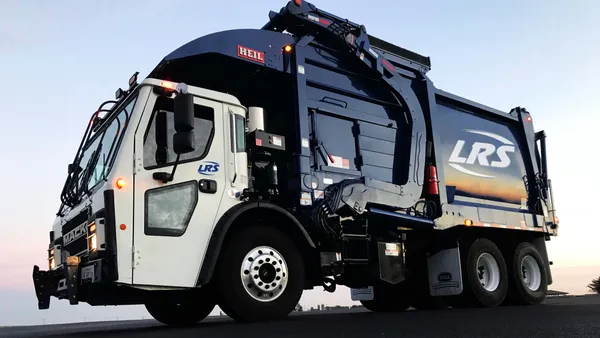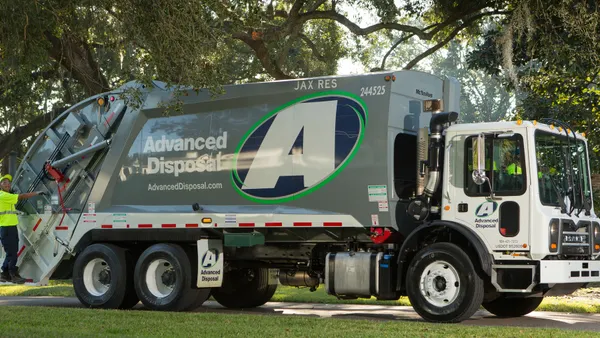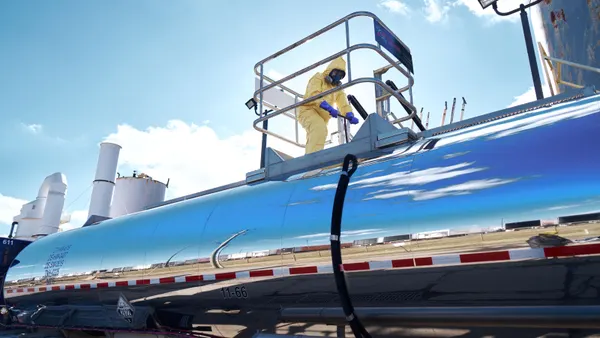Dive Brief:
- Baltimore's $9 million waste cart program has been a success so far, with less litter on the streets and a 34% drop in extermination calls, as reported by The Baltimore Sun.
- Residents began receiving their 65-gallon carts in March 2016 — with the option to request 35-gallon ones instead — and the city has completed delivery of all 170,000 since then.
- Some residents in more densely built neighborhoods have complained that even the 35-gallon carts are too large to store behind their homes or pull inside after pick-up. Certain households have decided to leave their carts on the sidewalk all week and this has led to a small amount of citations from city code enforcement officers.
Dive Insight:
The city's decision to offer smaller cart sizes last year was a response to residents' complaints about space, but no new solution has been proposed to address these latest concerns. Investing in the carts and equipment needed for trucks to lift them was seen as worth it compared to the costs of extermination, worker injuries and street cleaning. The carts also include RFID tracking devices which have helped the city deal with calls about 2,200 of them getting lost or stolen so far.
Carts have become more prevalent in recent years and a new study from the Sustainable Packaging Coalition found that 44% of homes with curbside access now have them. These carts are the preferred method for The Recycling Partnership when it invests in city programs and they have also been recognized by the Environmental Protection Agency for being more effective. While Chicago has reported issues with "aggressive squirrels" chewing through its carts, they seem to be a deterrent to rats and have helped cities such as New York maintain sanitary organics collection programs as well.
The overall success of this cart program is the latest in a series of positive steps for Baltimore's litter clean-up efforts. A nonprofit initiative has collected more than 55,000 cigarette butts from one waterfront neighborhood so far that will be turned into new products by TerraCycle. The city's two harbor-cleaning "trash wheels" have also been a huge hit that multiple cities now want to emulate the concept in their own waterways.











